Advertisement
Huntington’s 'Toni Stone' brings a trailblazing female baseball player to life
Resume
Have you ever heard of a baseball player named Toni Stone? If the answer is no, you’re not alone.
But in the 1950s, this pioneer became the first woman to join a professional men’s baseball team. Now a New England premiere at the Huntington Theatre is shining a light on this forgotten figure’s story.
Bringing “Toni Stone” and the great American pastime to the stage has required deep research and some intense spring training. On a mid-April afternoon, about a dozen actors took cues from two seasoned coaches in the Huntington’s rehearsal room. But, instead of running lines of dialogue, they were learning how to catch, slide and swing bats like pros.
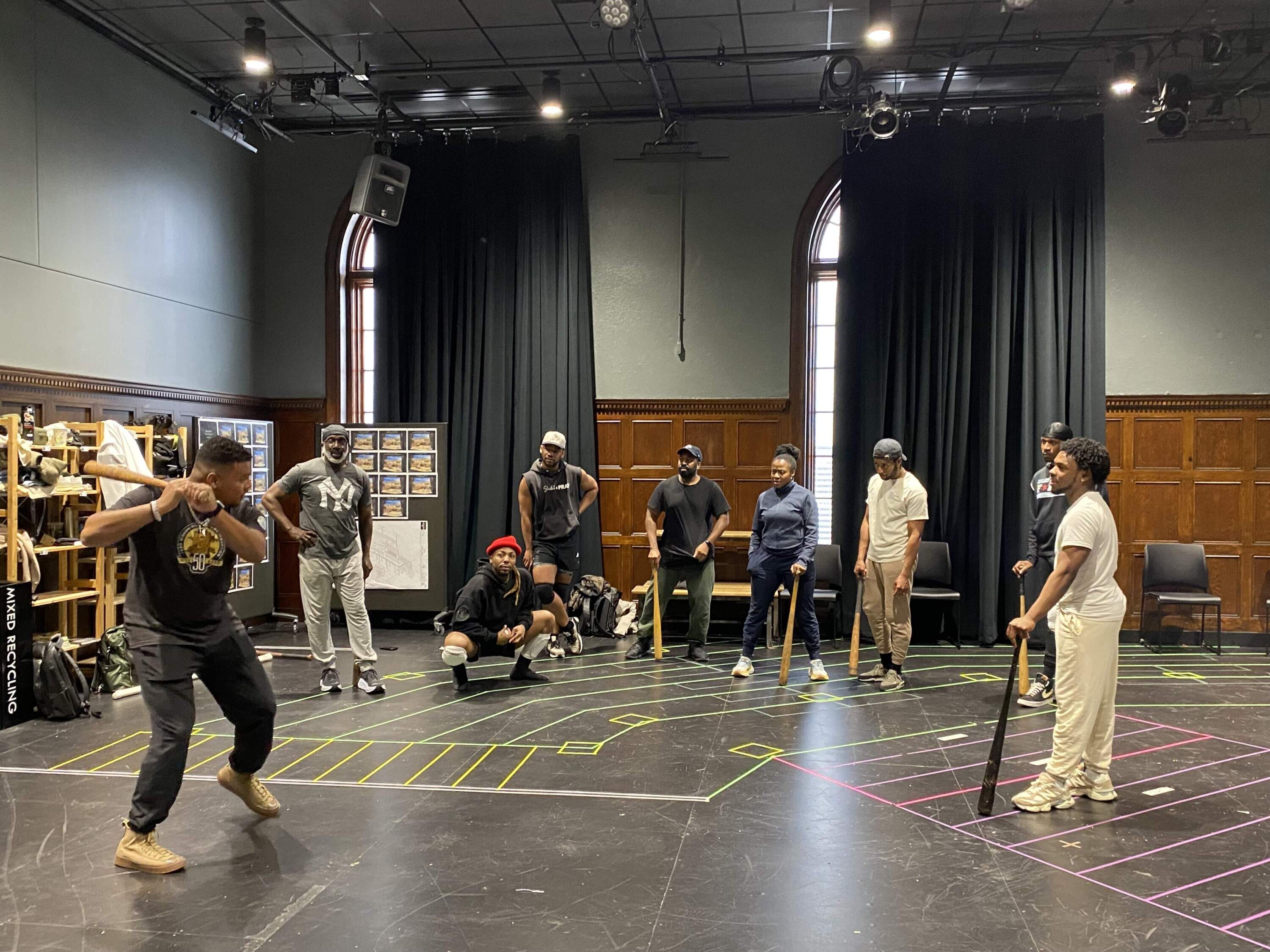
The baseball learning curve has been steep for playwright and director Lydia R. Diamond. “I don't have that sports gene that makes people cry when their team loses,” she said.
But the dramatist recalled how her emotions fired up a few years ago while reading her play's inspiration: Massachusetts author Martha Ackmann's biography “Curveball: The Remarkable True Story of Toni Stone.”
“I had not heard of [Stone], which I thought was appalling. And we should know her as well as we know Babe Ruth and Jackie Robinson and Satchel Paige,” Diamond said.
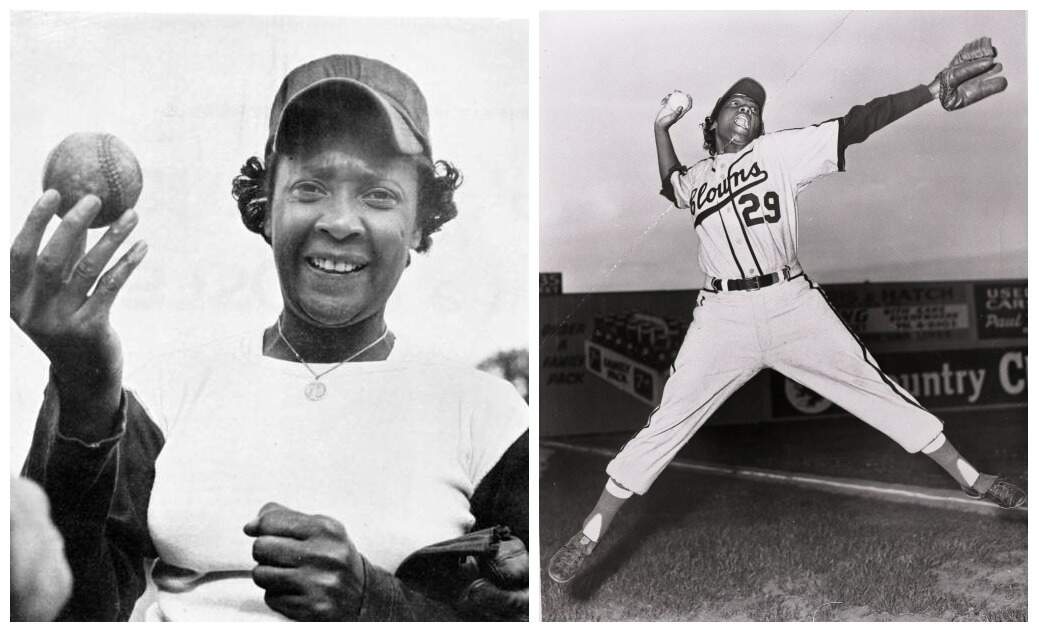
Like Paige and Robinson, Stone played for the Negro Leagues. As Diamond dove into the athlete’s story, her main character’s essence and motivation emerged. “I heard a voice that was based on the way she moved through the world,” Diamond said. "She had a singular focus on this drive to do sports, and especially baseball.”
Crafting Toni Stone's opening monologue was something of a clincher for Diamond, "and I was in," she said.
“It is small and round. And fits right there in your hand,” Stone says at the top of the first act. “And it's not the thing itself. It's the weight of it, how it feels, how it feels, what your hand was without it.”
Before Diamond’s play, Jennifer Mogbock, who plays Stone, also hadn’t heard of the trailblazing ballplayer, which infuriated her. Now the actor connects with her character’s self-awareness and willful determination. “It's not about anything other than what is it like to be inside of what you were truly placed on this earth to do — and know it early,” Mogbock said.
Throughout the play, Stone speaks directly to the audience as she unfurls the trajectory of her life. “You may have heard, I am the first woman to ever play professional ball,” she says. “Don’t know why it was me and not someone else. Don’t know even if history will think it matters. But you do maybe, or you wouldn’t be there and I wouldn’t be here…"
Advertisement
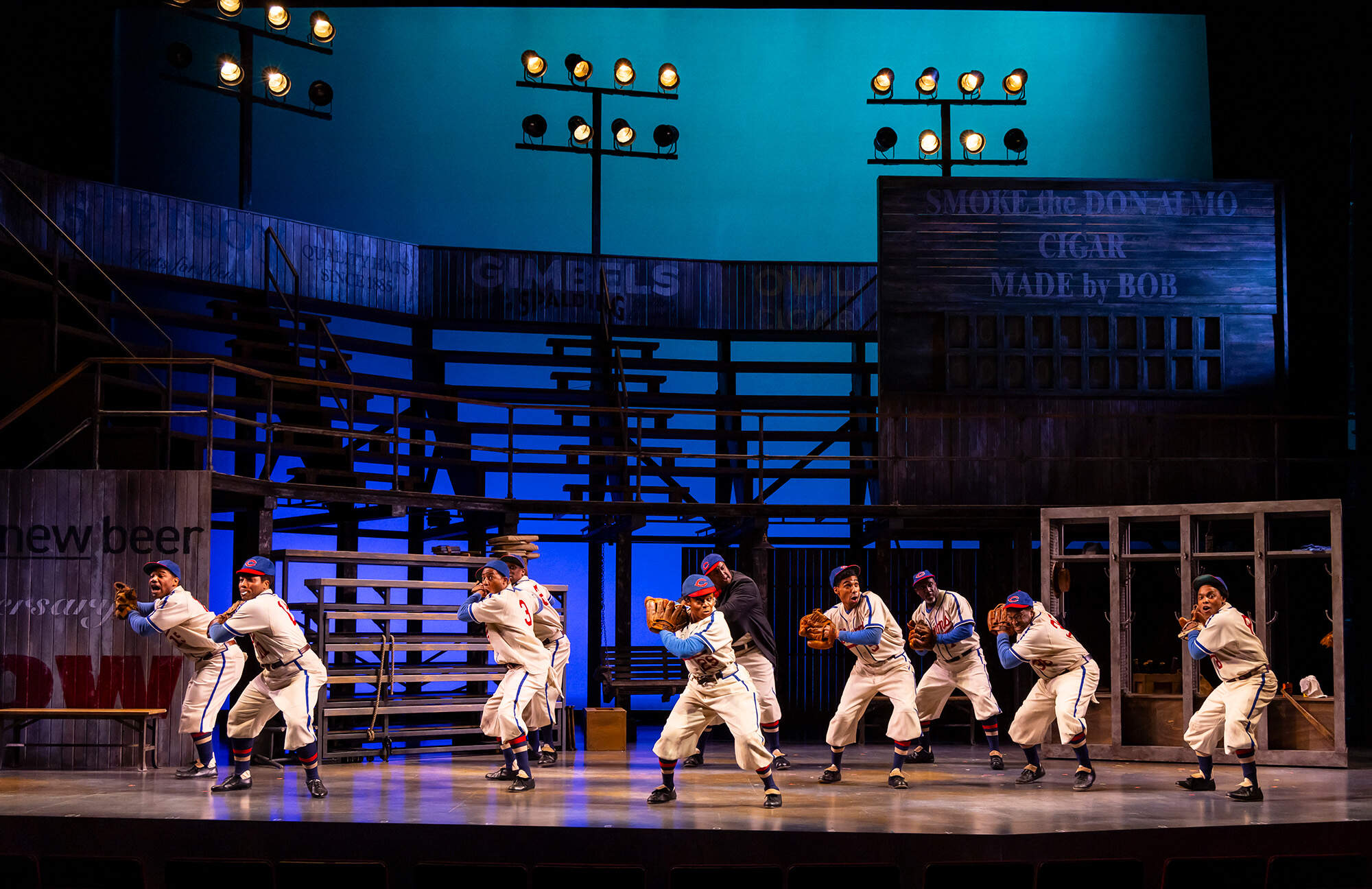
On stage, Stone flashes back and forth between between her present and past. We meet her as a young baseball card and stats-obsessed tomboy. To her parent’s dismay, she dominated the young, male players on her church’s baseball field. After being rejected by the All-American Girls Professional Baseball League, Stone won a spot on the Indianapolis Clowns.
The Clowns traveled by bus from town to town during the Jim Crow era. "It’s a perilous endeavor,” Diamond said, “There’s playing exhibition games with teams who are white, and fans that would have thrown things at them and screamed racial slurs.”
Diamond, who also directs “Toni Stone,” said both white and Black crowds expected Negro League teams to entertain. “They played baseball kind of like the Harlem Globetrotters.”
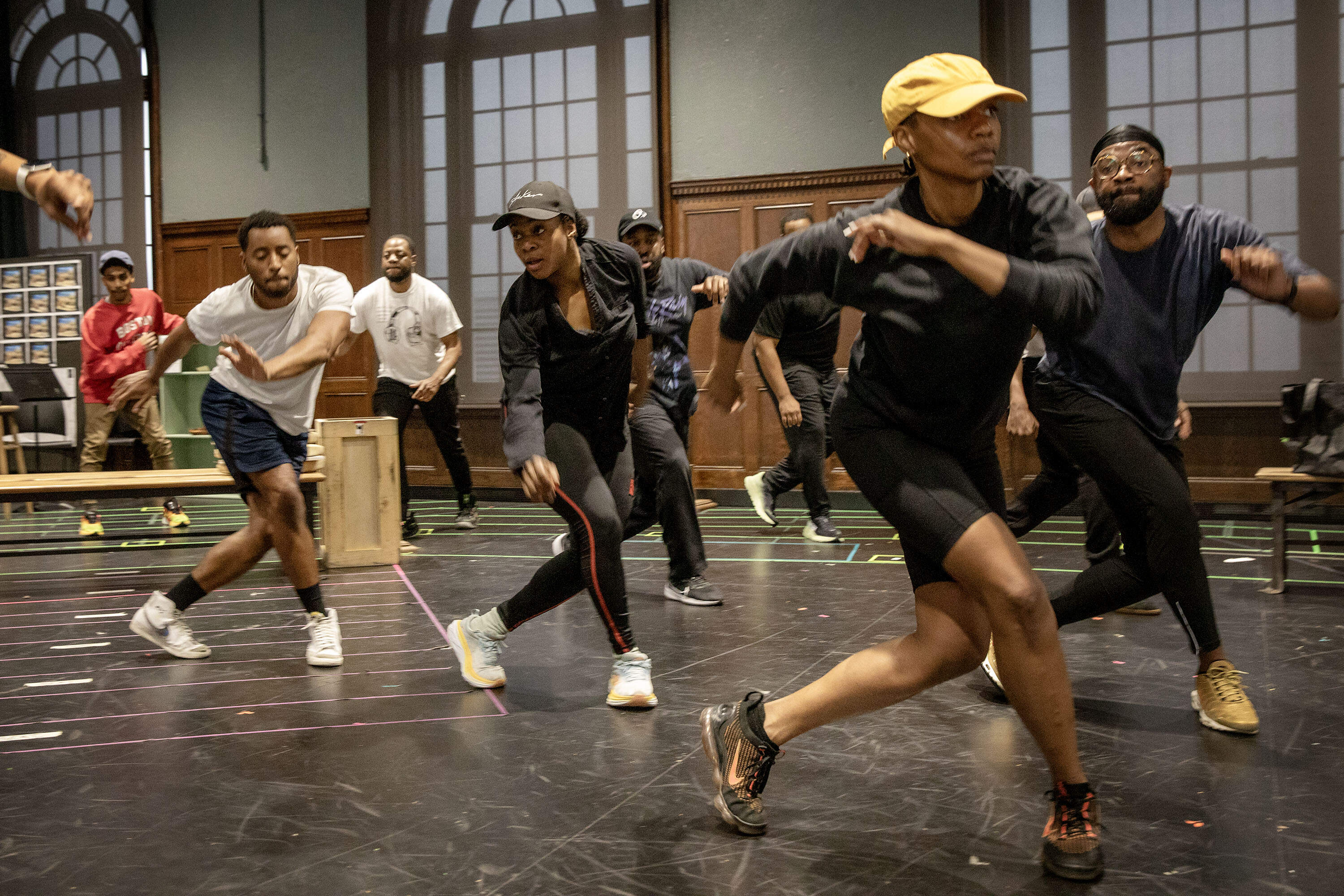
In the play, the Clowns’ white owner, Sydney Pollack, recognizes — and capitalizes on — that appeal.
“Someone once asked me, why own a Negro team when I can well afford a piece of the majors,” Pollack says. “It’s simple. Baseball is as serious a sport as there is. But let’s be honest. It’s also entertainment. Negro Leagues understand this. I like show business, I like baseball, and, I like Negroes.”
Clowns player Spec tells Stone, “Whites can always smell where there’s money to be made, and Negroes always happy to spend money on whatever Whites are selling.”
The team’s showmanship on the field roars to life during the play when the cast dances swaggering routines that merge baseball athleticism with vaudevillian-style performance. “It’s what we do,” Stone says when their musical number kicks off, “We win, and we bring the show.”
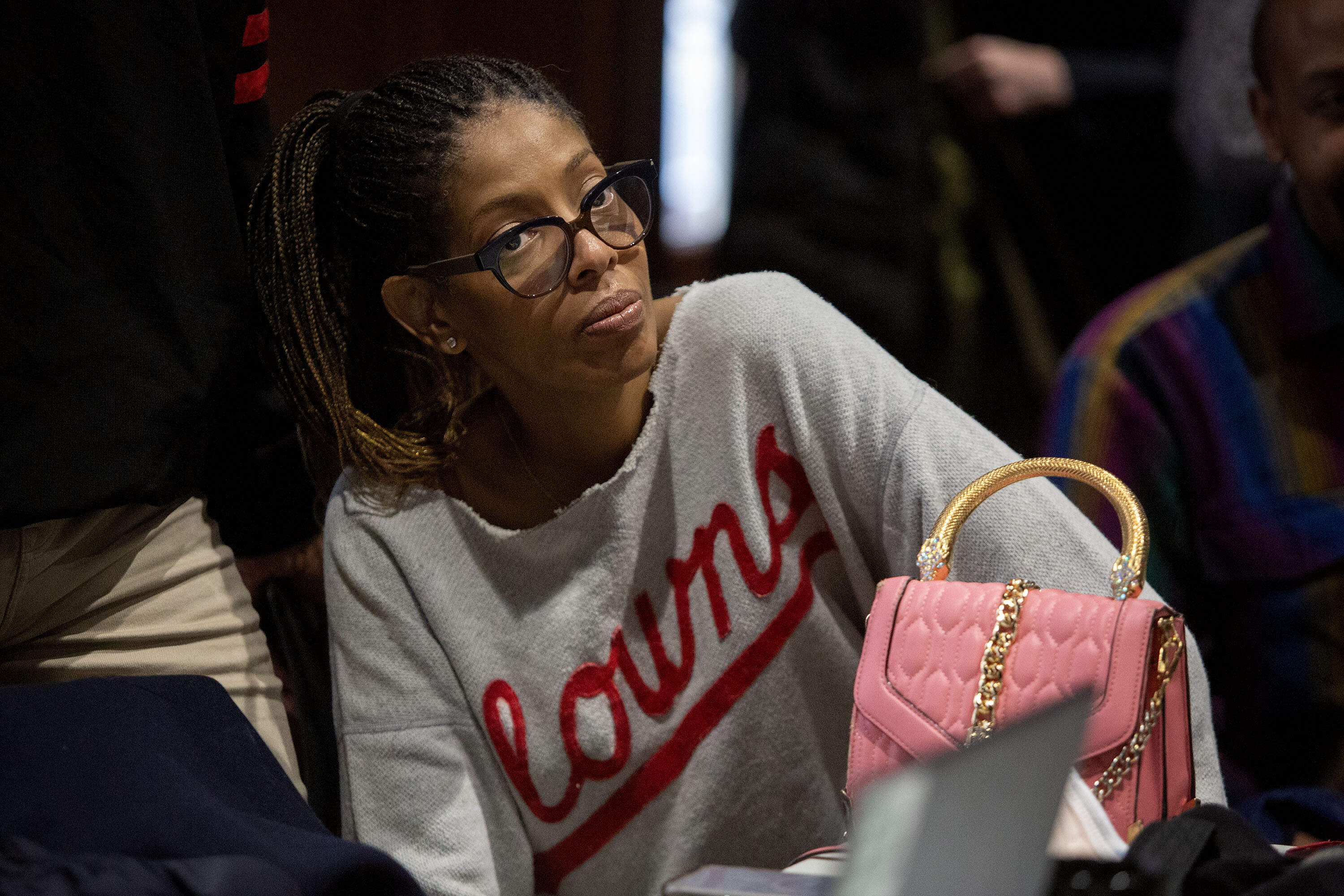
Stone and her teammates excelled at what they loved in the face of complicated, often demeaning racial tensions, but Diamond said she wanted her play to explore their experiences in nuanced ways. "In addition to being elite athletes, they were elite performers who performed in a genre that was narrow — at sometimes perhaps a cost to their souls — but also full of the satisfaction of a job well done and making an audience laugh,” she said. “There’s magic and virtuosity in that as well.”
Through out it all, Stone never loses her optimism or love of the game. Mogbock admires her for that, and hopes audiences will feel like she did when she first learned about this pioneer.
“I want people to leave the theater livid that they don't know Toni Stone, number one,” Mogbock said. “I want little girls to know about Toni Stone, until Toni Stone is as popular as Babe Ruth. Heck, if we can get a candy bar named after Toni Stone, that'd be brilliant.”
This segment aired on May 22, 2024.
